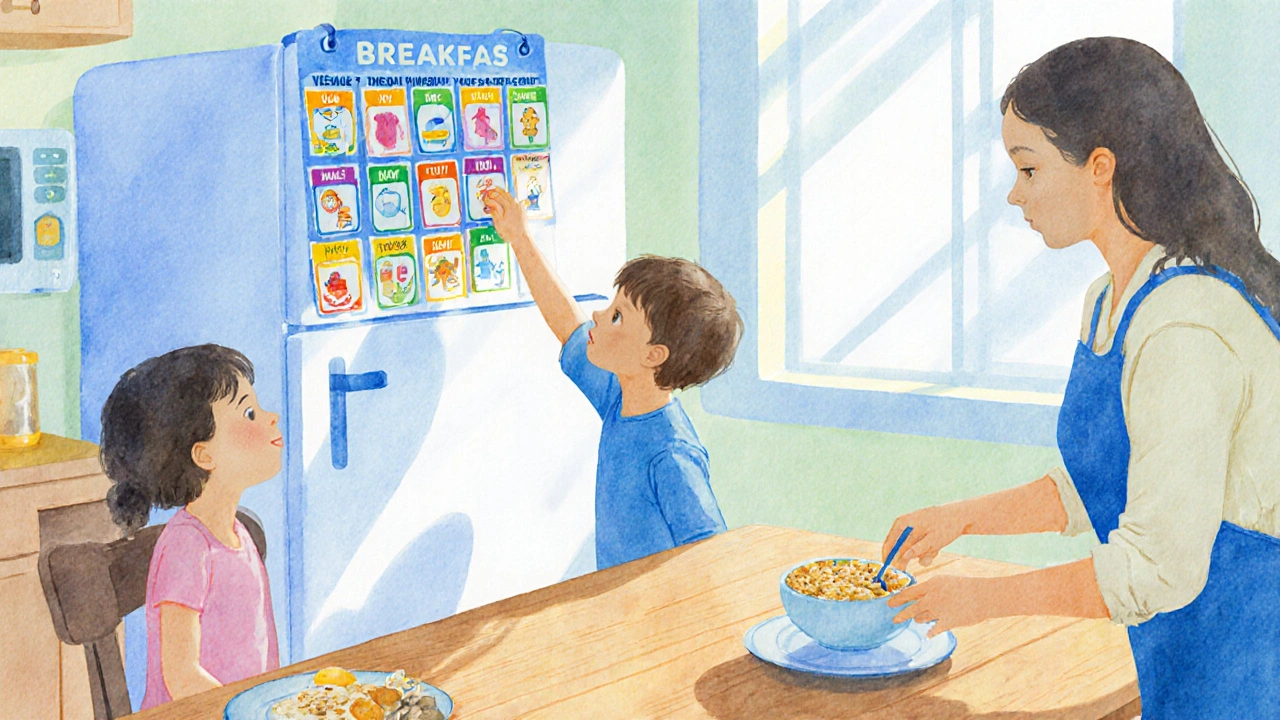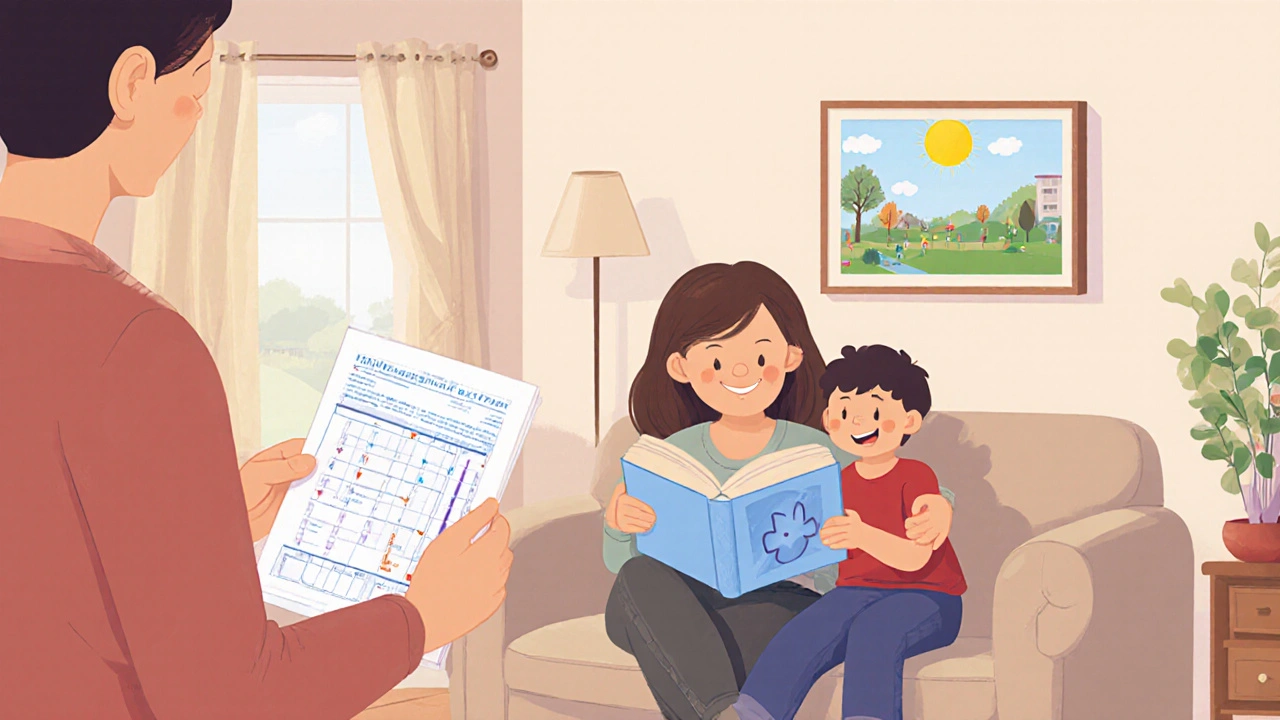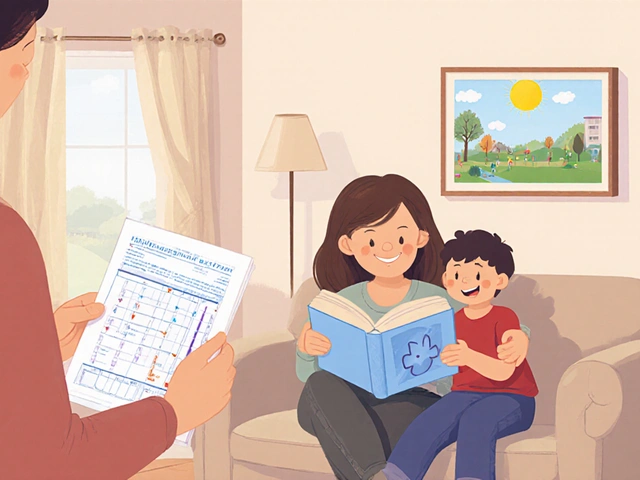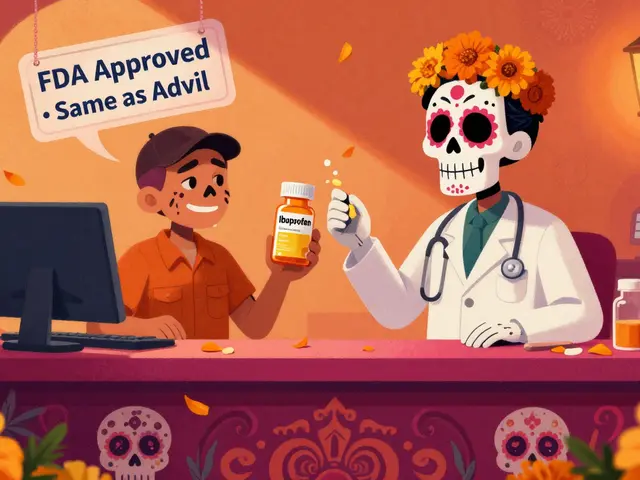Siblings' Emotional Response Quiz
This quiz helps families recognize common emotional responses siblings may experience during a brother or sister's neuroblastoma treatment.
Sometimes
Rarely
No
Sometimes
No
Slightly
No
Sometimes
Your Results
Recommendation: Consider speaking with a counselor or joining a sibling support group to help process these feelings.
When a child is diagnosed with Neuroblastoma is a rare childhood cancer that begins in immature nerve cells, commonly in the adrenal glands or along the spine, the whole family feels the ripple. While parents focus on treatment plans and hospital visits, siblings often grapple with a swirl of emotions they don’t know how to name. This guide breaks down what siblings experience and offers concrete ways families can help them stay resilient.
Quick Takeaways
- Validate feelings early; let siblings talk openly.
- Maintain routine to give a sense of normalcy.
- Use age‑appropriate explanations about the disease.
- Connect with Support Groups or a Psychologist specialized in pediatric oncology.
- Involve school staff, especially a School Counselor, to monitor academic and social changes.
Understanding the Sibling Experience
Siblings often feel invisible, guilty, or scared. Research from the Children’s Hospital of Philadelphia shows that up to 70% of siblings report anxiety during a sibling’s cancer treatment. Common reactions include:
- Confusion about what Neuroblastoma actually means.
- Worries that they might get sick too.
- Jealousy of the attention the ill child receives.
- Withdrawal from friends and hobbies.
Knowing these patterns helps parents intervene before feelings turn into long‑term stress.
Speak Their Language: Age‑Appropriate Communication
Talk to siblings using language they can grasp. For a five‑year‑old, you might say, “Your brother’s tummy needs special medicine to get stronger.” For a teenager, provide more detail about Treatment options like chemotherapy, surgery, or radiation, and discuss how the plan might affect daily life.
Key communication principles:
- Be honest, not graphic.
- Invite questions every day, not just once.
- Validate emotions: "I see you’re feeling sad, and that’s okay."
Maintain a Predictable Routine
Hospital appointments, medication schedules, and fluctuating moods can throw a household off balance. Keeping a consistent bedtime, meals, and school routine gives siblings a reliable anchor. Use visual calendars or whiteboards where the whole family can see upcoming events. When a treatment day disrupts the schedule, explain the change ahead of time and replace the missed activity with a short, fun alternative-like a game night or a nature walk.
Leverage Professional Support
While family love is essential, professional help adds a layer of expertise. A Psychologist trained in Pediatric Oncology can teach coping tools such as deep breathing, journaling, or art therapy. Many hospitals, including the Hospital in Calgary, offer sibling counseling as part of the cancer care package.
Consider these professional options:
- Individual counseling sessions (weekly or bi‑weekly).
- Group therapy where siblings meet peers sharing similar experiences.
- Online platforms with licensed therapists for families far from a specialty center.

Engage the School Environment
School can be both a sanctuary and a source of stress. A School Counselor can monitor academic performance, facilitate peer support, and arrange accommodations-like extra time for assignments or a quiet space during overwhelming moments. Encourage teachers to keep siblings in the loop about any changes at home, while respecting privacy.
Build Peer Support Through Groups
Finding a community that “gets it” reduces isolation. Support Groups for siblings often meet monthly at hospitals, community centers, or virtually. These gatherings let kids share stories, play games, and learn coping tricks from others who have walked the same path.
When a formal group isn’t available, create a small “buddy circle” with close friends, cousins, or neighbors. Set a regular playdate or video call, and keep the tone light-no medical talk unless the sibling wants to bring it up.
Use Play and Creative Expression
Play is a natural stress reliever. Encourage activities that let siblings process emotions without words:
- Art projects-drawing the family’s “hero” journey.
- Storytelling-writing a short tale where the brave sibling helps the hero recover.
- Physical play-bike rides, sports, or backyard obstacle courses to release energy.
These outlets give siblings a sense of agency and remind them that they still have normal childhood experiences.
How Parents Can Support Their Other Children
Parents are the linchpin in balancing attention. Here are practical steps:
- One‑on‑one time: Schedule a 15‑minute “special talk” each day dedicated solely to the sibling.
- Shared decision‑making: Let the sibling pick a family activity or a meal menu when possible.
- Positive framing: Highlight strengths-"You’re helping Mom by being brave while Dad is at the hospital."
- Monitor signs of distress: Look for changes in sleep, appetite, or school performance that might signal deeper issues.
Remember, self‑care for parents matters too. When caregivers are rested and emotionally grounded, they can better support all children.
Resources and Tools for Ongoing Support
Below is a quick reference table that outlines key resources, who they serve, and how to access them.
| Resource | Who It Helps | How to Access |
|---|---|---|
| Hospital‑Based Sibling Program | Children 4‑18 years old | Ask the pediatric oncology nurse or call the hospital’s family services line. |
| Online Therapy Platforms (e.g., BetterHelp Kids) | Any age, especially remote families | Sign up through the website; many insurers cover a portion. |
| Local Cancer Support Groups (Calgary Children’s Hospital) | Parents and siblings | Visit the hospital’s community outreach page or call the support desk. |
| School Counseling Services | Students experiencing academic or social stress | Contact the school’s main office to request a meeting. |
| Sibling Activity Kits (e.g., The Kids’ Cancer Book) | Families looking for guided exercises | Order online or request through the hospital’s resource library. |
Next Steps for Families
Take a moment to pick one strategy from each category-communication, routine, professional help, and play-and try it this week. Keep a simple journal noting how the sibling reacts. Adjust as needed, and don’t hesitate to ask for extra support from doctors or school staff.
Every family’s journey is unique, but with the right tools, siblings can build resilience, stay connected, and still enjoy the joys of childhood while their brother or sister fights neuroblastoma.

Frequently Asked Questions
How can I explain neuroblastoma to a 6‑year‑old?
Use simple, concrete language: "Your brother’s body has some special cells that need extra medicine to get better. The doctors and nurses are helping him, and you’re helping too by being brave."
What signs show a sibling is struggling emotionally?
Look for changes in sleep, appetite, school performance, or sudden withdrawal from friends. Irritability, frequent headaches, or taking on too many responsibilities can also signal stress.
Are there specific therapy options just for siblings?
Yes. Many pediatric oncology centers run sibling‑specific counseling, group art therapy, and peer‑support circles. These programs focus on expression, coping skills, and building a supportive network.
How can school accommodate a child whose sibling is in treatment?
A School Counselor can arrange flexible deadlines, provide a quiet space for anxiety, and coordinate with parents to monitor any academic decline.
What are low‑cost ways to keep a sibling engaged during hospital visits?
Bring portable activities like coloring books, simple board games, or a tablet with pre‑downloaded videos. Hospitals often have playrooms; ask the staff for access. Community libraries sometimes loan out activity kits.








